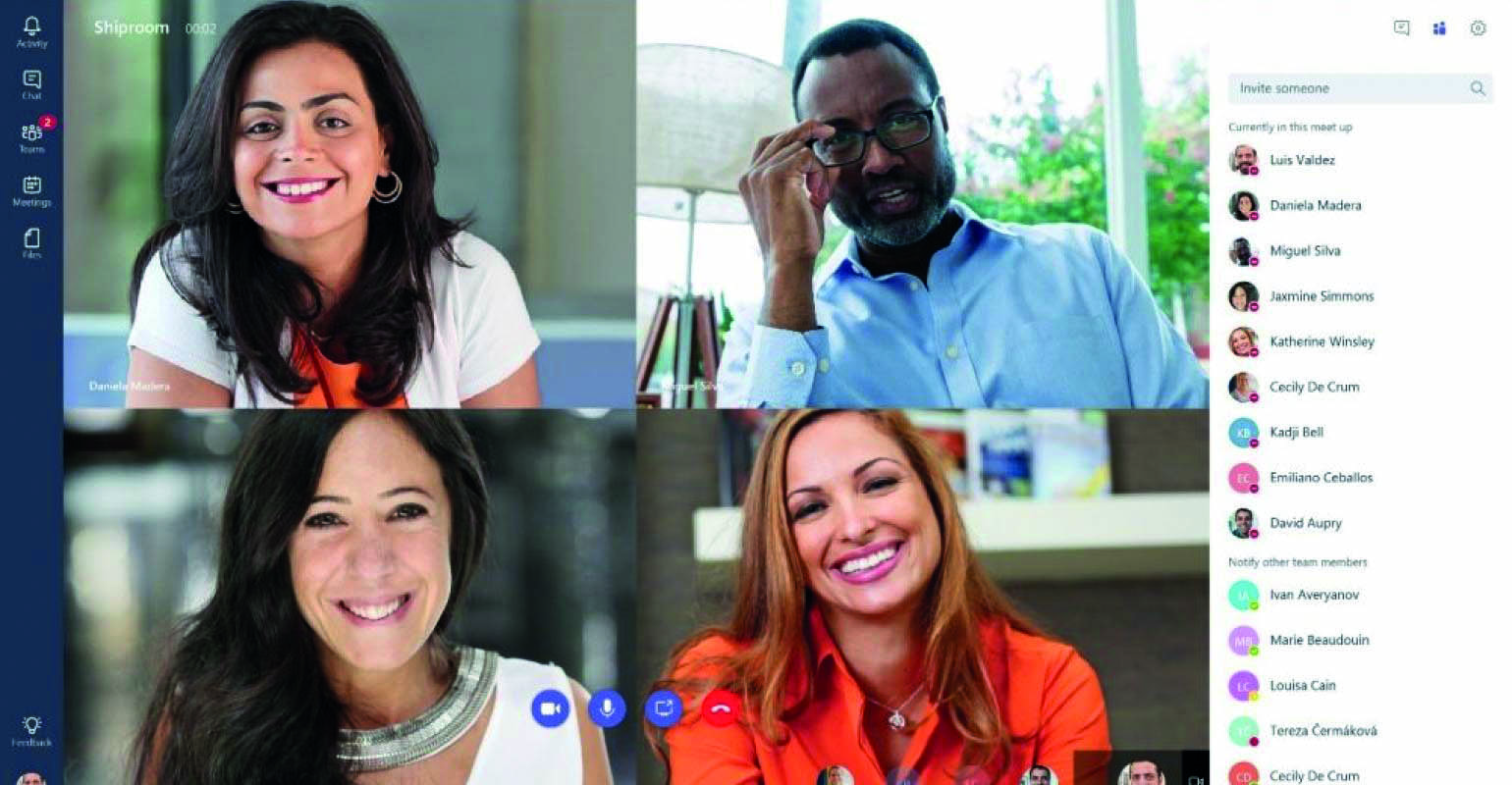The eighth in FIDIC’s market-leading series of Covid-19 webinars took place on Thursday 7 May 2020 with an event exploring how companies working in the industry have had to adapt to totally changed ways of working while safeguarding employees, writes FIDIC communications advisor Andy Walker.
“Covid-19: Managing employment relationships, employees and health and safety requirements” was attended by 408 attendees and highlighted how businesses working in the infrastructure sector have changed the way they work during the current crisis, while ensuring the health and safety and wellbeing of their staff. The webinar also considered what the future industry might look like from a people perspective.
The event was moderated by FIDIC CEO Nelson Ogunshakin and the speakers included from Spain, FIDIC board member Luis Villarroya Alonso, Benoît Clocheret, executive president of Artelia from France, Anne Kerr, global head of cities at Mott MacDonald from Hong Kong and Tim Shaw, senior client partner at Korn Ferry in the UK. As ever, FIDIC president Bill Howard was present at the webinar and FIDIC’s head of economic and strategic policy Graham Pontin also joined in.
Kicking off the event, FIDIC board member Luis Villarroya Alonso said that firms were having to get used like never before to working in a different way, with hardly any notice. Government regulations were being announced often without warning and companies were having to make the best of it, he said. The safety and wellbeing of staff was the most important thing and going forward there are likely to be feelings of fear and trepidation as employees start to come to terms with the “new normal”, a phrase which worries him, said Alonso. The lack of widespread testing was also problem he said and something that firms would have to come to terms with. While difficult to predict, it was clear that “the future would be very different from now,” he said.
Anne Kerr, global head of cities at Mott MacDonald, highlighted the challenges of dealing with flexible working and said that in Hong Kong their previous experience of working with the SARS epidemic had been helpful in dealing with the coronavirus. She highlighted the importance of keeping to a work routine while also looking out for colleagues to ensure their wellbeing. “A lot of people were nervous about being isolated when working from home, so we instituted a procedure called ‘check in’ where staff could request a chat with colleagues,” said Kerr. Mott MacDonald also provided support on issues like nutrition and general health and wellbeing, she said.
“More than ever before we all understand that our businesses are all about people,” said Artelia executive president Benoît Clocheret. The crisis had placed this in sharp focus he said and brought the importance of good communications to the fore. Like all companies, Artelia has had to adapt fast to the new challenges and ensure that it could deal with HR issues like isolated staff. “We have actively promoted training with our e-learning programme which has included formal and less formal courses. Training is also important in combatting social isolation and promoting wellbeing,” Clocheret said. Looking to the future, he said that there was still great uncertainty and that it would take some time to get back to anything approaching normal.
Tim Shaw, senior client partner at organisational consultancy Korn Ferry, said that it was useful to look at what the good leaders were doing during the current pandemic. “Authenticity and good communications are a hallmark of good leadership in the current crisis and leaders are showing empathy and that they are aware of what their staff are going through,” said Shaw. Korn Ferry’s research has shown that “clear, open and candid communications” was crucial at the present time. “There is no such thing as too much communication during this crisis,” he said. Keeping staff informed of their benefits and rights, especially around working hours, was important he said and critically senior managers should also ensure that they develop ways of maintaining informal communication when face-to-face interaction wasn’t possible.
As ever in this series of Covid-19 events, the discussion and Q&A part of the webinar covered a wide range of issues including absence issues, how the industry will deal with the threat of sudden and massive unemployment in the sector, the challenge of home working, whether the construction industry has changed forever, salary cuts, responsibility for health and safety and the importance of training and development going forward. Many of the speakers commented on how they thought the industry and the way that those who work in it might change in the future as a result of the pandemic. Precise predictions were extremely difficult and everyone was now an expert, however things would definitely change and firms would need to get used to a ‘new normal’ that was different from current custom and practice.
Summing up the webinar, FIDIC president Bill Howard said that above all the current pandemic had highlighted the importance of the infrastructure sector to global society and the type of infrastructure needed in the future would inevitably change. “I hope that the importance of our industry to the world will encourage young people to see it as a place in which to work to make a real difference,” he said.
The next FIDIC webinar in the series is Covid-19: Defending your balance sheet, securing your business’s financial position and ensuring liquidity which takes place on Tuesday 12 May at 12 noon CET. We expect a big turnout for this event so please register your place as soon as possible.
Click here to book your place on the event on defending your balance sheet.
Please click below to review a recording of the managing employment relationships webinar.







